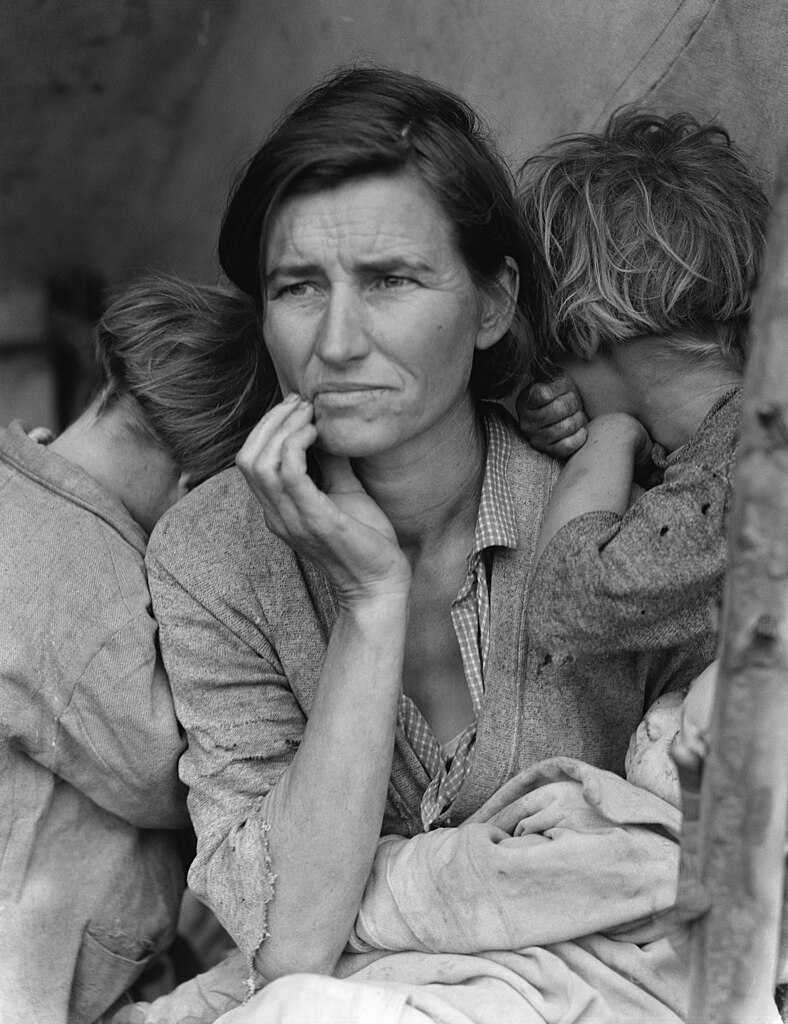Her eyes longingly gaze toward a life she was never able to obtain. Her children, poor and afraid, huddle around her, slumped over strong shoulders that have tirelessly borne the burden of raising an impoverished family for years. She is the Migrant Mother– the iconic face of The Great Depression, captured in a moment, remembered for decades to come.
Back in 1936, this image catapulted Dorthea Lange, a struggling photographer, into everlasting fame. “Migrant Mother” ignited empathy across the nation for those hit hardest by the depression. However, one crucial element is glaringly absent from this quintessential piece of visual rhetoric– its context.
In the beginning of this unit, we talked about the Rhetorical Triangle– a model developed by Blitzer that defines the key elements required to analyze a text. He pins audience, writer, and context to each of the triangle’s vertices, indicating that they’re each equally important. We know both who both the speaker and decoder of this message is, but when and where was this photo taken? Who is this so called “Migrant Mother” and what’s her story? Without answers, this photograph lends itself to contextual manipulation, which it did have to endure in the form of propaganda after it was published.
When pressured for context, Lange admitted to staging the photograph without knowing anything about her subject. The image is striking, but there’s no telling whether or not it accurately depicts the reality of the Great Depression. All we know is that it portrays an accurate depiction of America’s memory of this time period, an analysis we can only make when we evaluate the context of this image’s distribution– the fact that Lange gave her audience absolutely no context to reference.
There’s a reason Blitzer included context in his triangle. Without it, it’s easy to misconstrue information and impossible to gain a holistic understanding of a circumstance. Even the deprivation of background information is valid context for analyzing situations, as understood in the analysis of “Migrant Mother” by Dorthea Lange.
